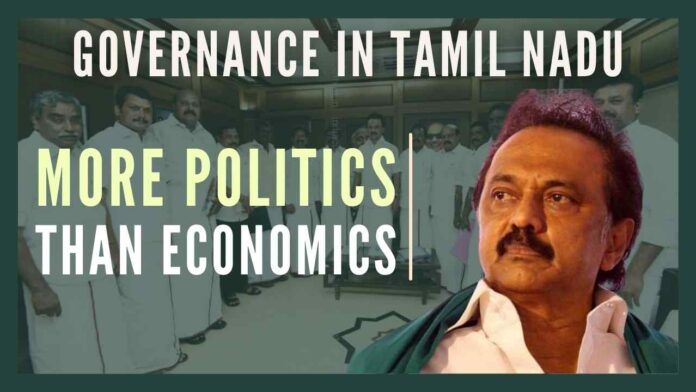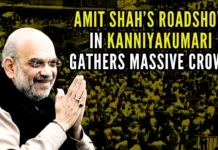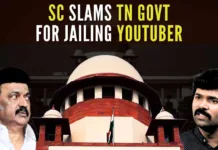
DMK fail to exceed expectations
After ten years of governance by the AIADMK party, the DMK party was voted to power in the state assembly elections in Tamil Nadu seven months back with an absolute majority.
The majority of people voted for DMK and its allies mainly due to the promises during the pre-election campaign that corruption would be rooted out in Tamil Nadu and some freebies would be extended to the people in addition to the several existing freebies.
Unfortunately, during the last seven months of DMK rule, the focus has been on politics rather than economics, with no perceptible reduction in corruption and promised freebies not being fully honoured due to the severe financial crisis in the state. Obviously, many promises have been made during the pre-election campaign without considering the financial condition of the state and probably thinking that the election should be won somehow.
The extent of the financial crisis:
Today, Tamil Nadu is passing through a period of severe financial crisis, with the total outstanding liabilities of the Tamil Nadu government expected to increase to about Rs.6.59 lakh crore in 2020-21, where state development loans (SDL) account for Rs.4.65 lakh crore. The remaining components of the liabilities include obligations from UDAY bonds, loans from financial institutions, and others. As per the Reserve Bank of India data, the Tamil Nadu government raised a loan of Rs.62425 crore in 2020-21 and Rs.39,000 crore in 2021-22 (till September 2021) through market borrowings.[1]
The grim fact is that in the last three to four years, borrowings have been made even for spendings like salaries, pension, and interest payments. Tamil Nadu is expected to spend 20.5% of its revenue receipts on interest payments in 2021-22, which would leave little money for implementing development projects. More than 60% of the Tamil Nadu government’s revenue is reported to be spent on paying salaries and wages to government employees[2].
It is difficult to visualize a financial crisis of the Tamil Nadu government more severe than this.
Remedial steps needed:
Obviously, what the Tamil Nadu government has to do is to increase its tax collection, which is not happening due to the high level of corruption and inefficiency in the government machinery at various levels. Further, it is necessary to get rid of the loss incurring public sector/ government-owned undertakings such as TANGEDCO (Tamil Nadu Generation and Distribution Corporation Limited)[3], State Transport Corporation[4], etc. Since these institutions have been incurring severe loss for several years now and with no feasibility of operating profitably in the near future. Further, unproductive assets of the Tamil Nadu government have to be sold to reduce the debt. Unfortunately, during the last seven months of DMK governance, nothing has been done towards such essential steps.
On the other hand, the financial crisis in some state undertakings is becoming grimmer due to the populist actions of the government. For example, in spite of heavy loss incurred by State Transport Corporation, the travel has been made free for women in the bus, which means that the income of the State Transport Corporation has been reduced to nearly half of the previous level.
Crisis in TANGEDCO:
In the case of the TANGEDCO, there are several allegations that power is being purchased at a very exorbitant cost by TANGEDCO, with suspicions being raised about the motive of the decision with regard to the purchase of power. The fact is the bank loans of TANGEDCO have been placed under the negative watch category[5]. Further, there are reported to be around Rs.3,300 crore of uncollected amount for electricity distributed to several municipalities and state government-owned organizations. This is shocking. No worthwhile efforts to improve the efficiency of TANGEDCO appear to have been taken so far.
Unnecessary expenditures:
There is an urgent need to reduce the unproductive expenditures which are now being incurred such as setting up a public park in Coimbatore, a big library in Madurai, a memorial building for a political leader, construction of Tamil Nadu House in Delhi, etc. All these are certain expenses which can be postponed until the financial conditions would improve.
Committees galore:
After coming to power, the DMK government has been announcing various committees to suggest economic reform measures and promote industrial growth, including one committee by internationally known economists. Many people wonder as to what is the need for so many committees on so many issues when solutions for the problems are very well known and only strong, efficient, and proactive measures are required to be implemented.
More politics:
While the financial crisis of the Tamil Nadu government continues unabated and perhaps, largely unattended, the matter of concern is that there appears to be more politics than economics in Tamil Nadu governance at present.
The DMK government started on the wrong foot by unilaterally terming the Central government as the Union government (Ondriya Arasu in Tamil), which serves no purpose other than providing vicarious satisfaction to some political groups in Tamil Nadu.
More than any other subject, it appears that the DMK government has been focusing on “reforming” Hindu temples in the state that are under government control. It has appointed priests in Hindu temples, without observing the traditional practices and rules for the appointment of the priests. Further, the DMK government is claiming that it is recovering the encroached land of Hindu temples in a big way[6]. At the same time, it is using the land belonging to Hindu temples for setting up colleges, when there are no trustees for the temples and government is only the administrator of the temples and cannot behave like an owner. The court has now stayed this order of state government to use the temple land for other purposes.
Further, the DMK government has been taking steps to collect the gold, silver, and diamond in the possession of temples and melt the gold and silver and use it to augment the financial resources of the state[7]. This step has also been challenged in the court and the court has issued an order against the melting of the gold and silver belonging to temples until the court would give its final decision. At the same time, Chief Minister has been announcing some special stipends, etc., for some priests in Hindu temples and these moves are suspected as measures to cover its unnecessary steps to” reform” the Hindu temples[8].
This move to interfere in the Hindu temple administration is being criticized since several leaders of the DMK government have declared themselves to be atheists and non-believers in God.
There are a lot of other instances of politics in administration such as demand for repeal of NEET (entrance examination) for admission to medical college[9], the insistence that only Tamil prayer song should be sung in educational institutions, government functions, public sector undertakings, and everybody should stand during the prayer[10]. So many other instances of politically motivated orders in the name of promoting Tamil culture have been initiated, which appears to be non-issues, particularly as far as focused governance on development is concerned.
While the focus should be on economic and industrial development and improving the financial conditions of the state, the discussions in Tamil Nadu political forums now take place only on counterproductive political issues.
In public forums and media, there are few discussions about the economic development strategies and financial crisis confronting the state. While the government frequently announces that several MOUs have been signed for setting up industrial projects that have a long gestation period, nothing much has been said about saving the existing industrial units from slipping into losses.
For example, the fireworks industry in the Sivakasi region is facing grim issues today due to a variety of reasons and the government has done nothing about saving the Sivakasi units.
Counterproductive focus:
The sad truth is that all of the decisions of the Tamil Nadu government appear to be taken on the basis of political considerations rather than improving the economic status of the state and relieving the state from the severe financial crisis. For example, the Sterlite Copper unit in Tuticorin continues to remain closed and the Chennai-Salem Highways project virtually remains stagnant due to political consideration of the state government. Neutrino project is an extremely important project that would boost the research status of Tamil Nadu in the world arena. Nobody in the DMK government is talking about this project, for whatever reason.
Note:
1. Text in Blue points to additional data on the topic.
2. The views expressed here are those of the author and do not necessarily represent or reflect the views of PGurus.
Reference:
[1] State had ₹3.78 lakh crore liability from SDLs as of March – Dec 06, 2021, The Hindu
[2] New Tamil Nadu government has a financial mess to clear – Apr 27, 2021, ToI
[3] With Centre’s deadline looming, loss-making TANGEDCO may up power tariff – Dec 09, 2021, The Wire
[4] Will the Tamil Nadu budget resolve the transport corporations’ financial crisis? – Aug 09, 2021, New Indian Express
[5] Bank loans of Tangedco placed under negative watch category – Dec 13, 2021, The Hindu
[6] DMK government reclaims temple properties worth ₹626 crore – Aug 13, 2021, The Hindu
[7] Tamil Nadu CM Stalin launches scheme to melt temple jewellery – Oct 13, 2021, Business Standard
[8] Chief Minister launches incentive scheme for priests – Sep 12, 2021, The Hindu
[9] Scrap NEET: Stalin Tables Bill Against NEET in Tamil Nadu Assembly – Sep 13, 2021, News 18
[10] Tamil Nadu announced ‘Tamil Thaai Vaazhthu’ as state song – Dec 20, 2021, Adda247
PGurus is now on Telegram. Click here to join our channel and stay updated with all the latest news and views
For all the latest updates, download PGurus App.











DMK Came to Power in 1967 Madras Presidency was renamed TN – Tamil Nadu
After 55 years of Dravidian Parties (ADMK/DMK) in power TN – Tasmac Nadu.
Tasmac – state government is the sole distributor/retailer of liquor in Tamil Nadu
References: https://www.tasmac.co.in/profile.php
Tamil Nadu State Marketing Corporation Limited (TASMAC) is a company incorporated under the Companies Act, 1956 on 23.05.1983. It is wholly owned by Govt. of Tamilnadu with Registered Office in Chennai. TASMAC is vested with the exclusive privilege of wholesale supply of IMFL for the whole State of Tamil Nadu as per Section 17 (C) (1-A) (a) of the Tamil Nadu Prohibition Act, 1937 (Tamil Nadu Act X of 1937). It has taken over the wholesale distribution of Indian Made Foreign Liquor from the Private Sector in the whole state of Tamil Nadu during May 1983. The exclusive privilege of Retail Vending of IMFS was granted to TASMAC under Sec.17 (C) (1-B) of the Tamil Nadu Prohibition Act, 1937. TASMAC is doing the retail business also successfully with effect from 29.11.2003.